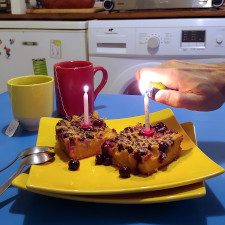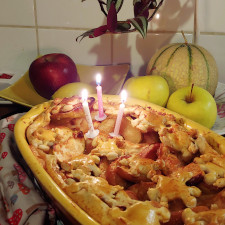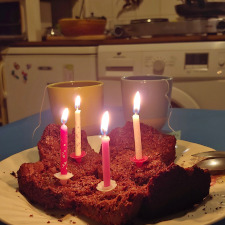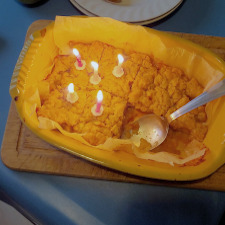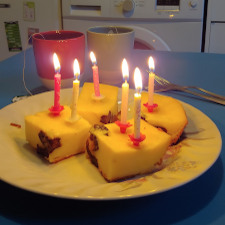Sharing stories of life during lockdown
Dr Andreas Bender
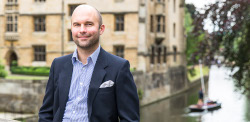 When Andreas finished his PhD here in 2005 he was convinced "I would join a pharmaceutical company later." He did work at Novartis in Boston as a postdoc for two years, but then spent the next 12 years in research, first at Leiden University in the Netherlands, and since 2010 here in Cambridge. In February this year Andreas joined AstraZeneca and splits his time between there and his research group here in the Department. Both positions involve computational drug discovery approaches.
When Andreas finished his PhD here in 2005 he was convinced "I would join a pharmaceutical company later." He did work at Novartis in Boston as a postdoc for two years, but then spent the next 12 years in research, first at Leiden University in the Netherlands, and since 2010 here in Cambridge. In February this year Andreas joined AstraZeneca and splits his time between there and his research group here in the Department. Both positions involve computational drug discovery approaches.
On leading an academic research group during lockdown
Andreas writes: At the time of writing in early April, the Department of Chemistry has been closed for two weeks. As for my research group, we have set up a shared Teams site, which we use for regular individual meetings, group meetings, for lunches (where so desired), and sharing other information. In some sense this even works better than before, since information is archived and searchable, and organised by topics.
It was apparent already a few days after the closure of the Department that some group members severly struggled with the situation, mostly due to the uncertainty involved. We do computational work, which from a purely practical angle is not too difficult to perform anywhere in the world, provided a suitable IT infrastructure is in place. My conclusion was to have more regular individual meetings with everyone in the group than before, and to talk about anything -- be it personal items, how to work from home, or a discussion of the actual research topic itself.
Personal life during lockdown
I am doing sports even more regularly than before. Every other day I run to Grantchester now, for one hour. What matters for me, apart from sports, is to have a suitable place to work. I still 'go to work' at 8:30 to 9 every morning (and try to switch everything off usually before dinner). I try to start with the single most important thing I aim to achieve this day and that really matters to me, even if I do it only for an hour, I will feel better all day afterwards.
Our child, a boy, is due to be born on 28 May. The situation in the hospitals could get worse until then, or it could get better. What I can do, and what we (as a couple) can do, is to prepare for the day, and to look forward to meeting the new person who will be on this planet.
Mélanie Bay
 Mélanie is a 3d year PhD student in the Vignolini research group.
Mélanie is a 3d year PhD student in the Vignolini research group.
Living and working in France during the lockdown
When the Department closed, Mélanie went back to her home in France. She arrived in Lyon on 17 March, the first day of France's strict lock-down. Mélanie says: "French people have been required to stay inside their homes at all times. We must fill out a specific form every time we go out, and we must tick the particular reason we have for going out."
However, Mélanie is fortunate in that she has been able to work from home. The research she is doing for her PhD involves computer modelling, and she is also writing a paper, both of which are possible to do from the flat where she is living. For the Vignolini group, Mélanie is working on cellulose-based systems that interact with light and selectively reflect particular wavelengths. She is developing modelling methods for their optical properties that will enable them to study how they are impacted by disorder.
Mélanie and her boyfriend are trying to remain positive and optimistic. They have instituted a weekly ritual to celebrate the end of another week of lockdown. She says: "Every Tuesday we celebrate 'having made it work through an additional lock-down week' with homemade cake and candles." That at least, looks like something worth celebrating!
Celebrating the end of lockdown weeks 1 - 6 with cakes and the corresponding number of candles. How many more weeks to go?

